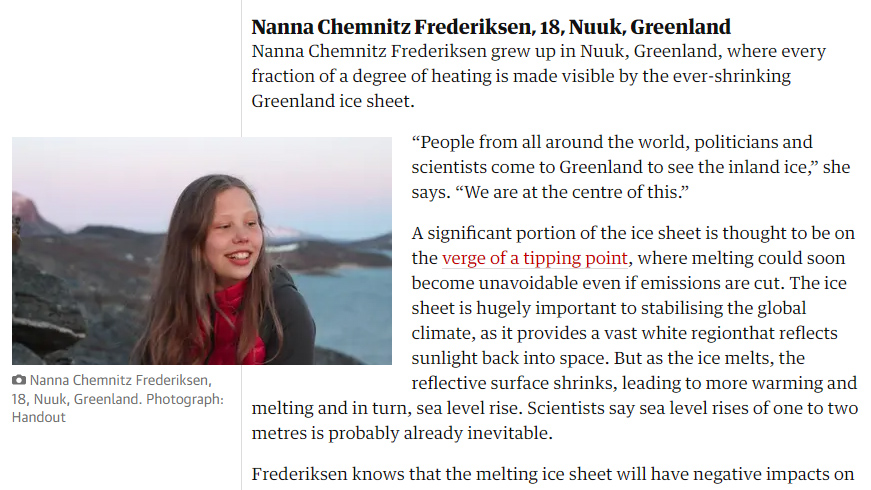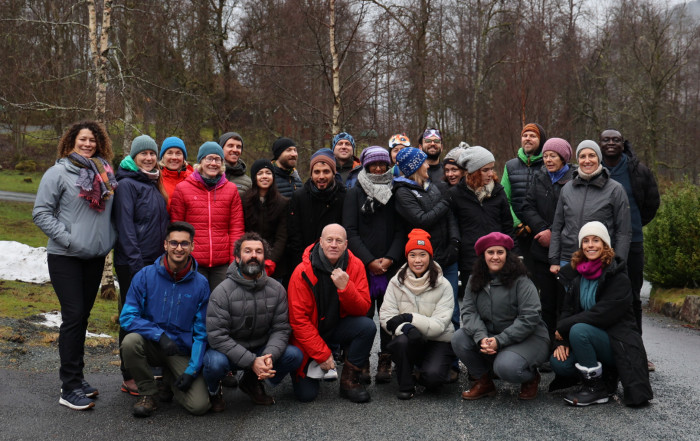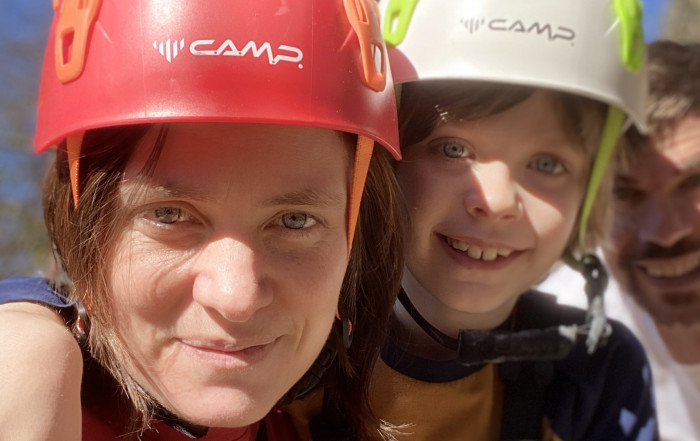“People from all around the world, politicians and scientists come to Greenland to see the inland ice,” she says. “We are at the centre of this.”
A significant portion of the ice sheet is thought to be on the verge of a tipping point, where melting could soon become unavoidable even if emissions are cut. The ice sheet is hugely important to stabilizing the global climate, as it provides a vast white region that reflects sunlight back into space. But as the ice melts, the reflective surface shrinks, leading to more warming and melting and in turn, sea level rise. Scientists say sea level rises of one to two metres is probably already inevitable.
Frederiksen knows that the melting ice sheet will have negative impacts on communities across Greenland, especially in northern settlements such as Qaanaaq where permafrost melting is destabilizing homes and roads and impacting how fishers and hunters operate.
But her real concern lies on the impact it will have globally. “I am not so scared of what the effects of the melting of ice in Greenland will be,” Frederiksen says, “It scares me what effect it can have for the rest of the world.”
Latest News
Building Bridges Through Experience: UWC Educators at RCN
Between January 20th and 25th, 2025, UWC Red Cross Nordic, in collaboration with the Outward Bound Center for Peacebuilding, hosted an international professional development training course for UWC educators from across the movement. [...]
Natasha Lambert Appointed as New Rektor at UWC Red Cross Nordic from 1st August
We are delighted to announce the appointment of our new Rektor, Natasha Lambert, who will start in the position on 1st of August 2025. Following an extensive global selection process, Natasha's appointment reflects [...]
UWC International Congress 2024
Education as a Force The 2024 UWC International Congress, held from 29 February to 2 March, marked a significant milestone in the history of our movement. This Congress, which was a culmination of [...]




